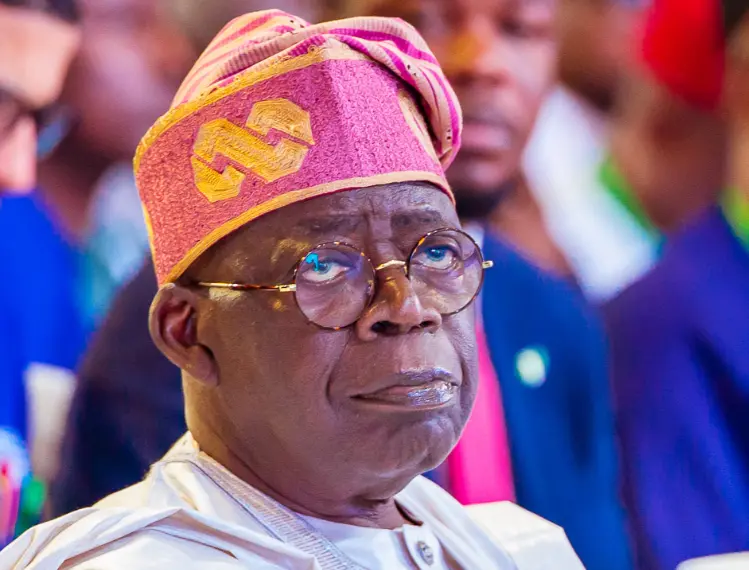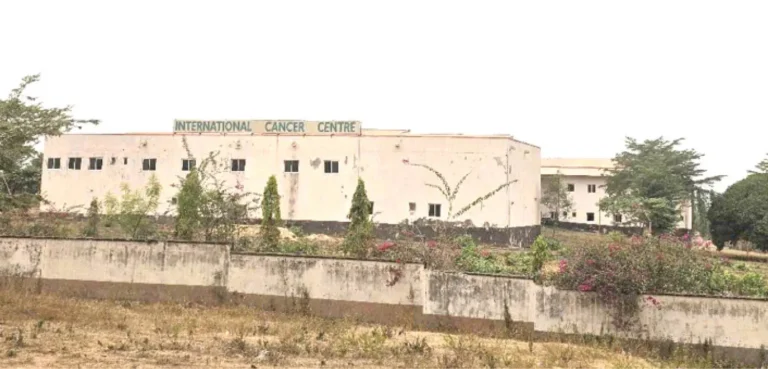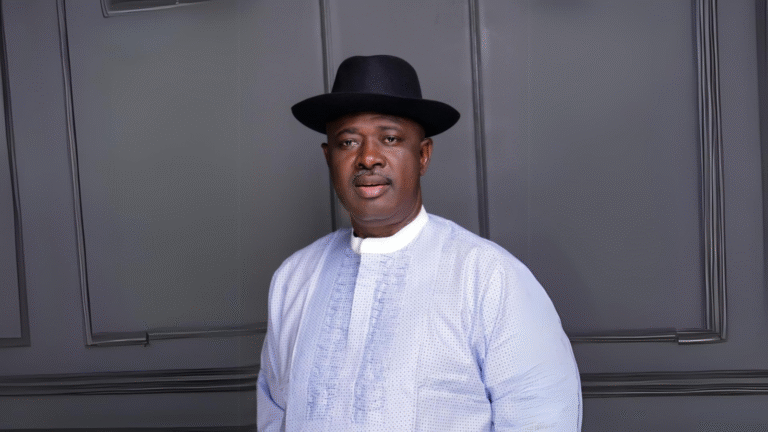
The first set of Nigerians marked for deportation from the US under the President Donald Trump administration has been transported to Ghana.
President John Dramani Mahama of Ghana disclosed this to reporters late Wednesday.
Deporting people to third-world countries – in many cases, places they’ve never lived – has been a hallmark of US President Donald Trump’s crackdown on undocumented immigrants, notably by sending hundreds to a notorious prison in El Salvador.
Mahama told reporters that Ghana had agreed to take in nationals from West Africa, where a regional agreement allows visa-free travel.
“We were approached by the US to accept third-party nationals who were being removed from the US. And we agreed with them that West African nationals were acceptable,” Mahama said.
He said a “first batch” of 14 people had come to Ghana, including “several” Nigerians who have since returned to their home countries, though he did not provide a timeline for when that occurred. Another arrived from The Gambia.
Ghana has long been home to Nigerian immigrants, though recent weeks have seen sporadic anti-Nigerian protests in several cities where groups of demonstrators demanded their expulsion, blaming them for rising crime, prostitution and unfair economic competition.
In late July, Nigeria sent a special envoy, and its foreign ministry urged calm while Ghanaian and Nigerian officials held talks to defuse tensions.
Deal amid tariff, visa pressure
The deportation agreement comes as Washington has hiked tariffs on Ghanaian goods and restricted visas issued to its nationals.
Mahama described relations between Accra and Washington as “tightening”, though he said relations remained positive.
Neighbouring Nigeria, for its part, has pushed back against accepting third-party deportees.
“The US is mounting considerable pressure on African countries to accept Venezuelans to be deported from the US, some straight out of prisons,” Nigerian Foreign Minister Yusuf Tuggar said in an interview with local broadcaster Channels Television in July.
“It will be difficult for Nigeria to accept Venezuelan prisoners,” he said, going on to suggest that recent tariff threats were related to the issue of deportations.
In an unprecedented move, Trump has overseen the deportation of hundreds of people to Panama, including some who were sent away before they could have their asylum applications processed.
Hundreds have also been sent to El Salvador, with the US administration invoking an 18th-century law to remove people it has accused of being Venezuelan gang members.
Some were sent despite US judges ordering the planes carrying them to turn around.
The White House has also deported third-country nationals to South Sudan, a war-torn, impoverished country.
Deal between Nigeria and the US
Speaking with Daily Trust on Thursday, the media aide to Nigeria’s minister of foreign affairs, Alkasim Abdulkadir, wondered why the US had to deport Nigerians through Ghana when there was an agreement in place between Nigeria and the US concerning the deportation of Nigerians.
He said, “The agreement that we had with America is that they will send Nigerians back to Nigeria, and the minister even said it in some of the interviews. The minister said Nigeria is ready to take back Nigerians.
“But we will not take back those who are not Nigerians. So, we don’t know. We cannot speak on behalf of the Americans on why Nigerians were sent there (to Ghana). Do you understand? Maybe it’s a logistics issue.”
When asked to speak on the current relationship between Nigeria and the US, which could have influenced the deportation of Nigerians to a third-party country, Abdulkadir challenged our correspondent to find out from the American embassy.
“The American embassy will be in the best position to answer why Nigerians were sent to Ghana,” he said.
The Nigerian government had rejected proposals to host deportees from countries like Venezuela and Honduras, citing legal and ethical concerns.
This stance has led to diplomatic friction but shows Nigeria’s commitment to protecting its borders and reputation.
Nigeria’s foreign minister, Yusuf Tuggar, quoting 1990s American rappers Public Enemy to make his point, has vowed that Nigeria would not take third-country nationals.
“In the words of the famous US rap group Public Enemy… You’ll remember a line from Flava Flav – a member of the group – who said: ‘Flava Flav has problems of his own. I can’t do nothin’ for you, man’, “ he said in an interview with Channels TV.
“We already have over 230 million people,” the minister said.
His comments follow threats from Washington to restrict visas and hike tariffs on countries that do not comply with its deportation policy.
“It will be unfair for Nigeria to accept 300 Venezuelan deportees,” he said, suggesting that the recent visa curbs on Nigerian travellers by the US were not “reciprocal” but a pressure tactic.
“You will be the same person who will castigate us if we acquiesce to accepting Venezuelan prisoners into Nigeria,” he added.
Earlier, the US Department of State said, as part of a “global reciprocity realignment”, nearly all non-immigrant and non-diplomatic visas issued to citizens of Nigeria, as well as those of Cameroon and Ethiopia, would now be single-entry and valid for only three months.
Meanwhile, President Donald Trump has threatened to hit countries which side with the policies of the BRICS alliance that go against US interests with an extra 10 percent tariff. The BRICS grouping of 11 nations is designed to challenge the political and economic power of the West.
Last year, the list of BRICS members expanded beyond the original group of Brazil, Russia, India, China and South Africa to include Egypt, Ethiopia, Indonesia, Iran, Saudi Arabia and the United Arab Emirates. Nigeria is not a full BRICS member but became its ninth partner country back in January.
The US embassy in Abuja denied that the Trump administration was engaging in tit-for-tat clampdowns on visas as punishment for Nigeria not giving in to their demands.
The real reasons for the visa restrictions, it said, were “technical and security benchmarks” that had to be respected.
Mr Tuggar said the threat of tariff hikes did not “necessarily have to do with us participating in BRICS.
“You have to also bear in mind that the US is mounting considerable pressure on African countries to accept Venezuelans to be deported from the US, some straight out of prison,” he added.
“It will be difficult for a country like Nigeria to accept Venezuelan prisoners into Nigeria. We have enough problems of our own; we cannot accept Venezuelan deportees to Nigeria, for crying out loud,” he concluded.
Instead, he said Nigeria was looking “to do deals with the US” because the country has a lot of gas, critical minerals and rare earths needed by American tech companies.
African countries with deportation deals with US
As of 2025, several African countries have entered into deportation arrangements with the United States, allowing the repatriation of undocumented migrants and third-country nationals.
These deals vary in scope and transparency, with some resulting in controversy over human rights and sovereignty.
Ghana has emerged as the most cooperative, maintaining a bilateral agreement that permits the US to deport West African nationals through Ghanaian territory.
This aligns with ECOWAS free movement protocols, which allow visa-free travel among member states.
Ghana’s role as a transit hub has made it a strategic partner in US deportation logistics.
Eswatini accepted five deportees in July 2025 under a quiet third-country deal, but the move triggered backlash from civil society groups.
Legal challenges are underway, with activists accusing the government of violating constitutional protections and international asylum norms.
South Sudan and Rwanda have also been used as destinations for deportees who were not accepted by their home countries.
South Sudan received individuals from Myanmar and Yemen, while Rwanda accepted seven deportees under a controversial US policy. These arrangements have raised questions about the ethics of outsourcing deportations to fragile or authoritarian states.
DAILY TRUST.




